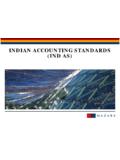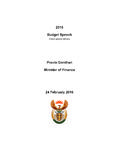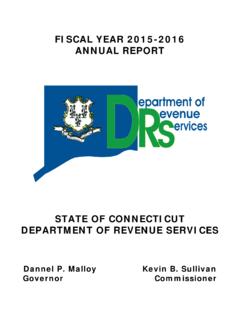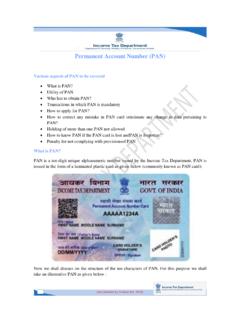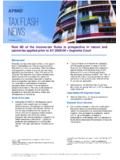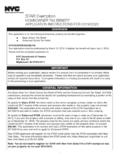Transcription of IT-Update Revised on 206C 2016 - nirc@icai
1 Revised update on provisions relating to Tax Collection at Source u/s 206c of income Tax Act, 1961 with special reference to amendments made by the Finance Act, 2012 and the Finance Act, 2016 Evolution and history of TCS 1. Before we dwell upon the contemporary TCS, it is imperative to look into the evolution and history of TCS. It will help to understand and appreciate the spirit of the legislative intent in amending the provisions relating to TCS vide the Finance Act, 2016 . Chapter XVII-BB was inserted in the income Tax Act, 1961 {hereinafter referred to the Act} by the Finance Act, 1988 Originally only Section 206c {Profits and gains from the business of trading in alcoholic liquor, forest produce, scrap etc.}
2 } was incorporated and introduced in the aforesaid Chapter by the Finance Act, 1988 , which has been amended from time to time in accordance with the policies of the Government. Presently section 206c runs from section (1) to Section (11), which provides a complete code in relation to collection of tax at source . Thereafter section 206CA and 206CB were inserted. Section 206CA {Tax-collection account number} was inserted by the Finance Act, 2002 , requiring every person collecting tax in accordance with the provisions of section 206c to apply for allotment of tax collection account number.
3 O However, vide proviso to sub-section (2) the provisions of section 206CA were made non-applicable by the Finance ( ) Act, 2004. o Simultaneously, Section 203A of the Act was amended by substitution vide the Finance (No. 2) Act, 2004 , and under sub-section (1) thereof, mechanism of common tax-deduction and collection-account number was provided. Section 206CB {Processing of statement of tax collected at source} was inserted by the Finance Act, 2015 providing the mechanism of processing of statement of TCS . : 2 : 2.
4 CBDT Circular No. 525 dated on insertion of section 206c In the budget speech on the union Budget and Finance Bill of 1988, the then Minister of Finance Sh. N. D. Tiwari, vide para 101 of his speech, had quoted as follows: as an anti-evasion measure, I propose to provide for assessment of income of persons engaged in certain trades like liquor and forest contracts, at a reasonably fixed percentage of the amount payable by them while purchasing the goods. The tax shall be collected at source. Keeping in view the memorandum explaining the aforesaid proposals, CBDT had issued Circular No. 525 dated explaining the legislative intent and objective in introducing the concept and provision of tax collection at source (TCS), the relevant part of which as follows; Instructions regarding deduction of tax at source on profits and gains from the business of trading in alcoholic liquor, forest produce, etc.
5 I. Considerable difficulty has been felt in the past in assessing income of persons who take contracts for sale of liquor, forest produce, etc. It has been the Department s experience that for taking such contracts, firms or associations of persons are specifically constituted and very often no trace is left of them or their members after the contract has been executed. ii. Persons have also been found to have taken contracts in benami names by floating undertakings or associations for short periods. Since tax is payable in the assessment years on the incomes of the previous years, the time by which the incomes from such sources become assessable, such persons become untraceable.
6 Iii. Moreover, at the time of assessment years in these cases, either the accounts are not available or they are mostly incorrect or incomplete. iv. Thus, even if assessments could be made on ex parte basis, it becomes almost impossible to collect the tax found due, either because it becomes difficult to establish the identity of the persons and trace them or because of the fact the persons in whose names contracts were taken are men of no means. v. With a view to combating large scale tax evasion by persons deriving incomes from such business, the Finance Act, 1988 has inserted a new section 44AC {since omitted by the Finance Act, 1992 } to provide for determination of income in such cases.
7 Vi. Further, with a view to facilitating collection of taxes from such assessees, the Finance Act, 1988 has inserted a new section 206c to provide for collection of such tax at source. : 3 : 3. Insertion of sub-section (1C) by the Finance (No. 2) Act 2004 Finance (No. 2) Act, 2004 had inserted sub-section (1C) to extend the provisions of collection of tax at source in respect of parking and toll auctions and mining or quarrying leases with an objective to widen the tax base.
8 Therefore, it was provided that every person who grants a lease or a licence or enters into a contract or otherwise transfers any right or interest in any parking lot or toll plaza or a mine or a quarry to another person, other than a public sector company, for the use of such parking lot or toll plaza or mine or quarry for the purposes of business shall collect tax from the licensee or lessee of any such licence, contract or lease of the specified nature at the rate of two per cent, at the time of debiting of the amount payable by the licencee or lessee to his account or at the time of receipt of such amount from him in cash or by the issue of a cheque or draft or by any other mode, whichever is earlier.
9 4. Legislative intent and thrust of the Government From the above it is evident that the legislative intent and the trust of the Government at that point of time was - o to combat large scale tax evasion in the trade of aforesaid goods by way of tenders and contracts. o to charge tax in respect of income of such business on presumption and special case at fixed percentage on the value of purchases. o to collect the tax from the buyer at the time of purchase itself. o to widen the tax base. 5. Business vs. Profession The marginal head of section 206c is Profits and gains from the business of trading in alcoholic liquor, forest produce, scrap etc.
10 The title of the aforesaid circular also comprise word business . It is so because this section was introduced with the intention to compute income from the business of aforesaid commodities/goods and to collect tax at source in relation to the amounts received from the buyer of such commodities/goods. Now, vide sub-section (1D) any amount received in cash for as consideration for sale of service exceeding Rs. 2 lakh has also been roped in the ambit of the provisions of TCS. It means that the provisions of section 206c , 206CA and 206CB shall apply to TCS on such services. : 4 : Word Service is neither defined in section 206c nor under the Act.
